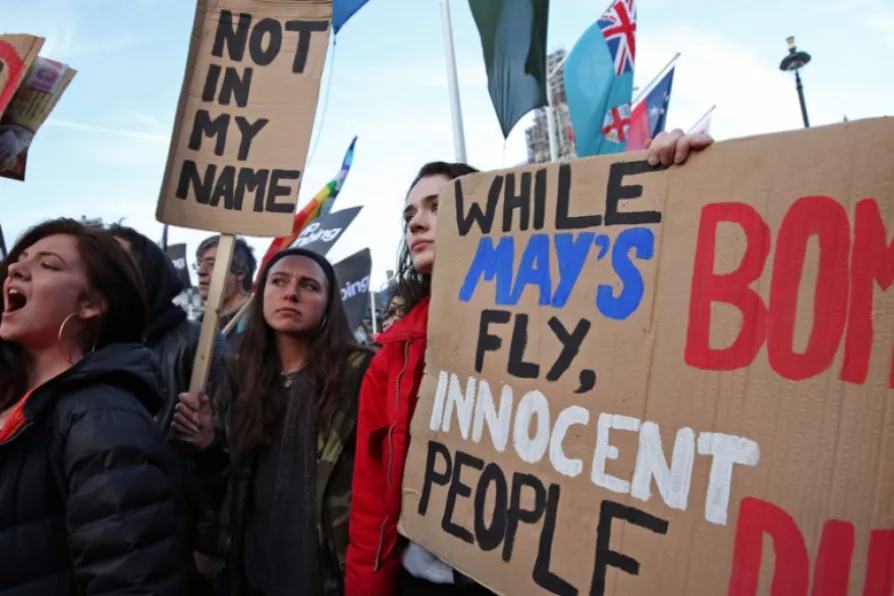As tens of thousands return to the streets for the first national Palestine march of 2026, this movement refuses to be sidelined or silenced, says PETER LEARY
Bombing is not the path to peace in Syria
The lessons of Iraq and Libya underline the dangers of reckless military interventions, writes RICHARD BURGON


THE most serious decision the Prime Minister can ever take is the decision to go to war.
When she does so, she must always bring the public and Parliament with her. With the military attack on Syria, Theresa May has failed on both accounts. Our Prime Minister — without a majority to call her own — didn’t even consult Parliament before Syria was bombed.
And of course, any action must be legal. I agree wholeheartedly with Jeremy Corbyn that this bombing was legally questionable.
Similar stories

BEN CHACKO says in different ways, the centenary of the General Strike and that of Fidel Castro’s birth point to priority tasks for the British left in the coming year














